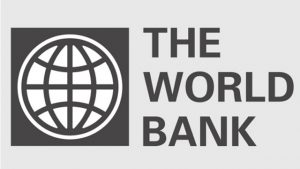 The World Bank has approved three grants totalling US$80 million for hurricane recovery efforts in Haiti.
The World Bank has approved three grants totalling US$80 million for hurricane recovery efforts in Haiti.
The Washington-based financial institution said that the additional financing aims to restore the quality and supply of health services, and scale up cholera prevention and response in the French-speaking Caribbean country.
The additional financing also seeks to “secure safe, reliable and resilient water supply services, and sustain agricultural production through farming subsidy and cash for works schemes in hurricane-affected areas in the South of Haiti,” the World Bank said.
“With the approval of these grants, the World Bank is striving to fulfil its commitment to the people of Haiti to help them recover and be more resilient to natural disasters,” said Mary Barton Dock, the World Bank’s Special Envoy for Haiti.
“As the government has started to prepare for the new hurricane season, this additional support puts a greater emphasis on strengthening resilience of essential agriculture, health and water services and target those most in need,” she added.
According to the Post-Disaster Needs Assessment, losses in agriculture, livestock and fishing was estimated at US$593 million, with a long-term impact on the livelihoods of the rural population. While the education and health sectors were less impacted, the World Bank said Haiti’s population was significantly affected by the interruption of services and destruction of schools and health centres.
“Water services and sanitation have long been lacking and were particularly vulnerable to natural disasters,” the bank said, stating that only 58 per cent of Haitians have access to water (48 per cent in rural areas) and 28 per cent to improved sanitation (19 per cent in rural areas).
Eight months after the hurricane, the World Bank said recovery is under way in Haiti.
It said part of the harvest was saved, and about 8,000 hectares have been planted with various food crops for the spring harvest in Les Anglais, Dubreuil, Chantal, D’Avezac and Dory.
Through the additional financing in agriculture, about 20,000 farmers will receive cash for work, and thousands of producers will receive agricultural inputs, livestock, technical support and benefit from restored irrigation systems, the World Bank said.
It said this will contribute to rebuild their assets and productive capacities under more climate resilient conditions.
The World Bank said rapid scaled-up response in water and sanitation interventions, and in health, resulted in a decrease in suspected new cases of cholera and in cholera-related deaths. Through the additional financing in health and water, the World Bank said about 385,000 Haitians living in affected areas will get improved access to water.
In addition, the bank said mothers and children will have access to improved health services; communities in cholera affected areas will benefit from intensified surveillance, prevention efforts and treatment; and 40 health facilities will be rehabilitated and fully functioning.
The World Bank said these grants are part of the US$100 million package of support mobilised by the International Development Association’s (IDA) Crisis Response Window for reconstruction after the devastating impact of Hurricane Matthew.
A US$20 million grant to rehabilitate roads and bridges, and strengthen the disaster risk management capacity of the civil protection teams in Haiti was already approved last week, the bank said.
